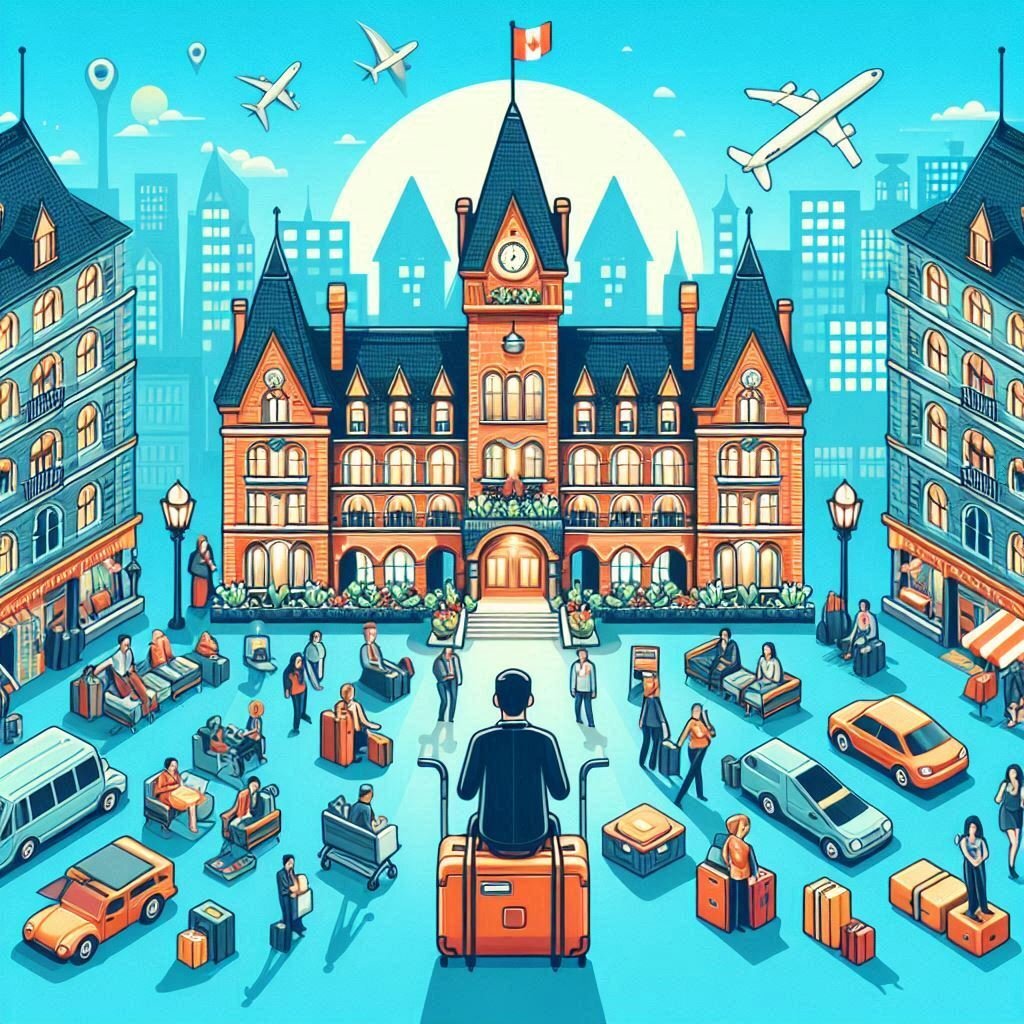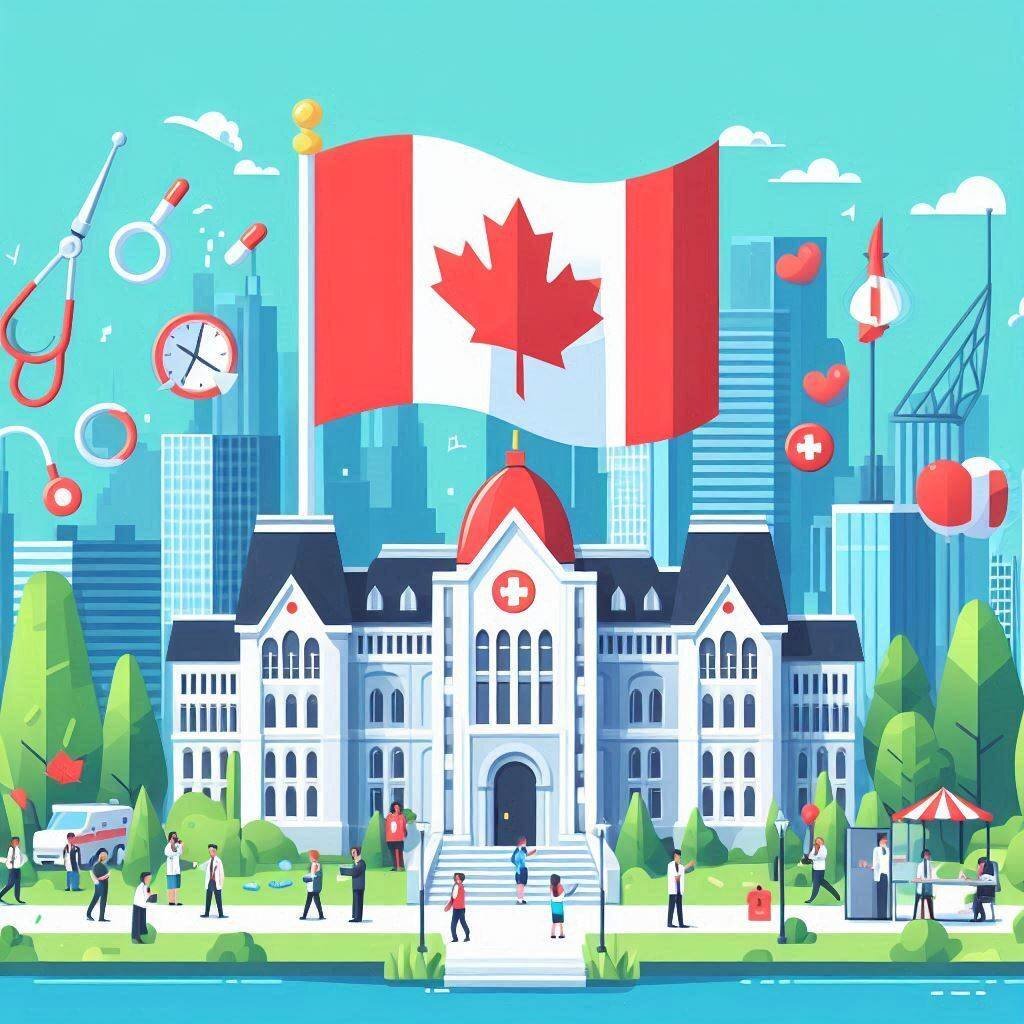Vancouver is one of Canada’s most vibrant and diverse cities, and it offers world-class options when it comes to legal education. An increasing number of students interested in pursuing law gravitate towards Vancouver schools for their superior academics, beautiful West Coast location, and thriving technology and business sectors that offer prime opportunities for aspiring lawyers.
In British Columbia, there are currently two law schools that grant JD (Juris Doctor) law degrees – the University of British Columbia Faculty of Law, and Thompson Rivers University Faculty of Law. UBC is the province’s oldest and highest-ranked law school, while TRU brings greater access and affordability. There is also the Peter A. Allard School of Law, which operates within the UBC Faculty of Law. Outside of JD programs, students can also study in paralegal certificate or diploma programs at several Vancouver career colleges.
This comprehensive guide will explore all the options for legal education in Vancouver. Discover what programs are offered, admission requirements, costs, rankings, and outcomes for graduates of Vancouver’s top law schools.
Overview of Law Programs at Vancouver Schools
Legal education is highly popular among applicants in British Columbia. Law schools in Vancouver receive many more qualified candidates each admission cycle than they can accommodate in their classes.
For example, the University of British Columbia had 2,583 applicants competing for only 184 spots in their 2023 JD degree program class – making the acceptance rate just 7.1% at Canada’s highest-ranked law faculty. The situation is similar at other Vancouver law schools, meaning admission is very competitive.
In general, applicants to Vancouver law schools require:
- A bachelor’s degree in any discipline, typically with strong grades
- Competitive LSAT (Law School Admission Test) scores
- Legal or community-focused extracurricular activities
- Interest and motivation to practice law through statements and reference letters
Meeting just the minimum requirements will not guarantee entrance to top law programs in Vancouver. Successful applicants stand out by achieving high undergraduate GPAs, scoring among the top LSAT test percentiles, gaining relevant work experience, and demonstrating their genuine passion for legal studies and practice.
While entrance standards are high, graduating from an esteemed law school like UBC Faculty of Law or Allard Law can launch careers for Vancouver lawyers. Keep reading to discover the offerings at Vancouver’s premier law schools.
University of British Columbia Faculty of Law
As British Columbia’s first and longest-established law faculty, UBC consistently ranks among the top law schools in Canada. It carries substantial prestige and name recognition, making it a prime choice for strong candidates seeking a legal education with national and global reach.
Here are key facts on programs and opportunities at UBC’s law school:
Overview of UBC Law Programs
UBC Law offers a common law Juris Doctor (JD) degree, which in most provinces takes 3 years of full-time studies to complete. UBC also offers joint degree programs that integrate complementary legal and business disciplines:
- Juris Doctor & Master of Business Administration (JD/MBA)
- Juris Doctor & Master of Public Policy and Global Affairs (JD/MPPGA)
These options allow students to earn two degrees concurrently over 4 years. There is also a possibility to complete just 1 year at another Faculty, then return for the final 2 years of the JD program. This offers flexibility to explore legal interests paired with social sciences, public administration, mathematics, and more.
Alongside academic degrees, UBC Law operates legal clinics providing practical work experience in various fields. These intensive programs form a core experiential learning component.
UBC Law Admissions and Entry Requirements
Admission into UBC’s JD program is highly competitive, with only around 184 positions available per year. The minimum requirements are:
- 4 year bachelor’s degree in any discipline
- LSAT score of at least 163
- Competitive GPA from undergraduate degree (minimum around 80%)
- Personal profile assessing extracurricular activities, work experience, motivation, and communication skills
UBC also values community engagement, emotional maturity, ethics, judgment, resilience, and respect for diversity in prospective students.
On top of grades and test scores meeting thresholds, successful applicants must demonstrate through their personal statements strong potential as future lawyers committed to public service.
Cost of Attending UBC Law School
As a public university, UBC Law has a lower tuition for Canadian students compared to private schools. Estimated annual costs are:
- Approximately $20,000 CAD for tuition
- $14,000 – $17,000 for living expenses
- Textbooks, transportation, student fees extra
For 2023, domestic Canadian law students at UBC are looking at over $34,000 per academic year for their degree program tuition and cost of living. International students pay substantially higher tuition rates.
UBC Law awards entrance scholarships partially covering JD tuition based on academic merit, as well as bursaries for students facing financial barriers. External legal scholarships and Professional Line of Credit bank loans are other options UBC law students use for funding their degree.
Notable Aspects of Studying Law at UBC
UBC prides itself on pushing JD students to critically assess law, think globally, apply cross-disciplinary knowledge, and grapple with ethical conflicts. The first-year foundations course challenges assumptions and builds a social justice framework for studying law.
Upper year electives dive deeper into specialized legal topics – Indigenous law, immigration and refugee law, Pacific Rim trade law and more. Students also put learning into practice through intensive clinical programs:
- Business Law Clinic – Students provide business legal services to startups and entrepreneurs under lawyer supervision
- Indigenous Community Legal Clinic – Work directly with Indigenous communities on rights, governance, child welfare and land claims
- Innocence Project at UBC – Investigate claims of wrongful conviction and imprisonment
Alongside academics, UBC has over two dozen law student groups to get involved in – moot court, Pro Bono Students Canada, multiple student legal associations by practice area, and more.
Rankings and Reputation of UBC Law School
The UBC Faculty of Law consistently places among the best law schools worldwide. In the 2023 QS World Law School Rankings, UBC placed 23rd globally and 3rd nationally. This makes UBC the highest-ranked law school in Western Canada.
Domestically, Maclean’s 2023 Law School Rankings placed UBC 2nd among all Canadian law faculties. UBC also holds pride of place as British Columbia’s first, largest, and highest-ranked legal program for over 70 years running.
In Canada’s globally-respected legal education system, a degree from UBC Faculty of Law signals outstanding quality and competence to employers across BC, Canada, and worldwide.
Career Prospects for UBC Law Graduates
Over 95% of UBC Law graduates find employment within 6 months after finishing their degrees. Recent classes have seen rising hiring rates at midsize and large law firms, as well as in business, government, and public interest law.
As Canada’s Pacific Gateway city, Vancouver offers opportunities with transnational businesses, trade law firms, immigration practices, and more. UBC Law prepares graduates well to take on key roles within BC’s and Canada’s thriving economy. Alumni often become leaders and innovators across the legal field at home and abroad.
In conclusion, the UBC Faculty of Law stands within the top tier of Canadian law schools for the quality of teaching and research, student support, and outcomes of its graduates seeking professional careers across Vancouver, BC, and globally. It sets the standard for legal excellence among Vancouver law programs.
Thompson Rivers University Faculty of Law
A newer player providing distinctive JD degree options is Thompson Rivers University in Kamloops, BC. As a midsize school with smaller class sizes, TRU Law aims to be accessible and approachable for students from many backgrounds.
Despite being a young law faculty founded in 2011, TRU already holds full accreditation from Canada’s National Committee on Accreditation. Its graduates achieve consistently high success on British Columbia’s bar exam – on par with much older schools.
TRU Law sets itself apart with its teaching focused faculty and a welcoming, collegial student culture. Here is what TRU offers JD students:
Overview of TRU Law Programs
TRU Faculty of Law confers the Juris Doctor common law credential. JD students at Thompson Rivers additionally select one of these specializations:
- Business Law Specialization – Focused courses in corporate, commercial, tax, securities and other business law fields
- Indigenous Lands, Resources and Governments Specialization – Covering legal issues specific to Indigenous communities and leadership
- Sustainability Law Specialization – Interdisciplinary environmental, energy and natural resource law
The school also has several joint degrees allowing students to earn a second graduate credential:
- Juris Doctor & Master of Business Administration (JD/MBA)
- Juris Doctor & Master of Environmental Economics and Management (JD/MEEM)
- Juris Doctor & Master of Arts in Leadership (JD/MAL)
These combined degrees span 4 years of full-time study instead of the regular 3 years for a standalone JD. Credits are also offered for articles of clerkship (legal apprenticeship) worked during school terms.
Admissions and Requirements for TRU Law Programs
TRU Faculty of Law seeks well-rounded applicants combining academic ability, work and volunteer experience, leadership qualities, communication skills and motivation. Admissions criteria include:
- 4 year undergraduate degree in any discipline, with minimum B average (3.00 GPA on a 4.33 scale)
- Competitive LSAT score, with median scores around 160 for enrollment
- Resume showing professional, volunteer and community involvement
- Letters of reference commenting on your personal strengths, integrity and collegiality
- Written statement explaining your reasons for applying to TRU Law
While a science degree background can be beneficial, TRU accepts graduates from over 20 disciplines into its JD program. Admissions decisions follow a holistic review rather than strictly academic metrics. This opens doors for non-traditional applicants with the right competencies and attitude.
Tuition Fees and Funding for TRU Law Students
As a public teaching university, TRU Faculty of Law provides an affordable JD degree option compared to private institutions. Current annual costs are:
- $16,456 CAD tuition for domestic Canadian students
- $18,000 – $21,000 for living expenses in Kamloops area
- Textbooks, transportation, student fees extra
So Canadian residents can expect to budget approximately $34,000 – $37,000 per year at TRU Law. Significant tuition scholarships and entrance awards are available based on LSAT scores and undergraduate grades, covering 25% – 100% of the year’s tuition amount.
TRU also provides needs-based bursaries and emergency funding for qualifying students, alongside government student loans.
What Sets TRU Law Apart
Smaller class sizes, approachable professors, and a welcoming culture make TRU Faculty of Law stand out from larger schools. JD students here enjoy close-knit educational and social experiences.
The optional Business Law, Indigenous Lands & Resources, and Sustainability Law streams allow customization alongside TRU Law’s broad curriculum. Special programs like Legal Applications of Blockchain Technology Certificate, JD/MBA and JD/Environmental Economics mixed degrees provide unique offerings.
TRU places heavy focus on skills development through intensive clinics, moots, clerkships and more. Community legal advocacy forms a cornerstone here. JD students run an Access to Justice Centre offering free legal help for those unable to afford lawyers. This emphasis on hands-on learning and community service nurtures practice-ready new lawyers.
Reputation and Recognition for TRU Law
While a younger school, TRU Faculty of Law made Top 10 nationwide in Maclean’s 2023 Law Schools Ranking – an incredible feat given most peers have 50+ years more history. The school also holds full national accreditation on par with Canada’s most esteemed law faculties.
This recognition acknowledges TRU Law’s calibre of teaching, experiential opportunities, and student success on British Columbia’s bar exam – at over 95% pass rate within 2 years of graduation.
As a smaller law school emphasizing teaching quality, TRU Faculty of Law offers JD students personalized attention for developing legal skills and knowledge on par with much larger programs.
Career Outcomes for TRU Law Graduates
Strong bar exam performance and clinical experience prepare TRU Faculty of Law graduates to launch legal careers across British Columbia and beyond. With the school’s national accreditation, JD recipients can register with any Canadian law society for licensing.
Many TRU Law alumni work within British Columbia as barristers, solicitors, and public servants. Several have opened their own firms or taken in-house counsel roles with companies in BC’s thriving technology sector. Other graduates secure positions out-of-province or abroad in fields like corporate law, Indigenous legal advocacy, government, and non-profit sectors.
With smaller cohorts, TRU’s Career Development Office can provide dedicated support for landing that first legal clerkship or associate role after graduation. Above all, TRU Law seeks to nurture practice-ready lawyers equipped to serve communities across Canada with integrity, ethics and leadership.
Peter A. Allard School of Law at UBC
The Peter A. Allard School of Law is quite special – it operates as the graduate law program situated within UBC’s larger Faculty of Law. That means Allard Law students take courses through the UBC JD curriculum, taught by the same world-class professors.
At the same time, Allard stands on its own as an elite academic law school focused purely on legal theory and analysis rather than vocational training for practice. Here is what defines this one-of-a-kind legal program within British Columbia:
Allard Law Degree Programs
Unlike the professional UBC JD degree qualifying recipients as barristers and solicitors, Allard School of Law offers academic-focused graduate degrees:
- Master of Laws (LLM) – For internationally-trained lawyers seeking to upgrade qualifications, specialize, or enter Canadian legal practice
- Doctor of Juridical Science (SJD) – Advanced research-based law degree similar to a PhD
- Master of Laws Common Law (LLMCL) – Bridge to JD program for internationally trained lawyers
- Joint degrees – such as UBC JD/LLM Tax Law Specialization
The programs cater to law graduates seeking specialization or academic advancement domestically and abroad. Admissions are very selective for these top-tier Allard graduate law credentials.
Notable Aspects of Allard Law Programs
Allard prioritizes academic rigor, critical thinking and high-level scholarship with small seminar-style classes. The graduate curriculum centers around analyzing legislation and case law through a social justice lens.
Streams of focus include taxation, Indigenous law, business law and policy issues. There is also a Technology and Innovation stream engaging with legal issues posed by advances in tech and science.
Allard also hosts major legal research initiatives – the Centre for Business Law, RECALL mnemonic memory studies, metadata privacy, and more. These provide unparalleled research and potential publication opportunities for graduate scholars at Peter A. Allard law school.
Academics and Reputation of Allard Law
The Peter A. Allard School of Law cements UBC as Canada’s premier law research powerhouse. As an elite graduate division, Allard attracts top-tier legal academics and students from across Canada and worldwide.
This shows in Allard faculty members consistently ranking among the world’s most-cited legal scholars. Allard students also make their mark at prestigious mooting competitions like the Vis International Arbitration Moot and Wilson moot court championships.
These demonstrate the esteemed global reputation of Peter A. Allard as a leading academic law school within one of North America’s highest-ranked law programs at UBC.
Careers for Allard Law Graduates
Graduates of Allard’s academic Master’s and Doctor of Juridical Science law programs often continue within legal education as professors, deans and senior administrators. Recipients of the UBC LLM Common Law degree are eligible to enter Canadian JD (Juris Doctor) licensing programs for becoming legal practitioners.
Other paths for Allard graduates include policy work, legal consulting, and senior positions with law firms, courts, government agencies, and global organizations like the United Nations. Alumni often become leaders shaping laws and regulations worldwide.
Essentially, Peter A. Allard School of Law best serves JD holders seeking to teach law or advance into influential legal policy and advisory roles locally and abroad. The Allard community nurtures leading legal minds primed for academia, government, business, the non-profit sector and other realms interfacing with the law.
Other Legal Education Options in Vancouver
While UBC Faculty of Law, Allard School of Law, and Thompson Rivers University’s law programs are British Columbia’s only options for the common law JD credential, Vancouver offers other pathways to entering legal professions:
Paralegal Diploma Programs
Several private colleges in Metro Vancouver offer 1-2 year paralegal diploma programs for careers in supporting lawyer teams. Coursework covers areas like legal writing and procedures, litigation rules, and law office administration.
Local options include:
- Paralegal Diploma at Vancouver Community College
- Paralegal Program at Ashton College
- Legal Administration Executive Paralegal Program at Stenberg College
Paralegal graduates work alongside lawyers in public and private practice as legal assistants, law clerks, and researchers. Their accredited training qualifies paralegals to represent clients before some Provincial tribunals under lawyer supervision through limited appearances.
Online and Distance Law Courses
Several universities in Canada offer individual law courses by distance and online learning for college diploma credits. These allow working professionals to explore aspects of business, family law, wills, and more for career advancement.
However, distance courses in common law do not grant law degrees or qualifications towards bar admission by themselves. Online channels provide supplementary credentials rather than full JD programs.
Accelerated and Part-Time JD Options
While less common, certain Canadian law schools provide accelerated 2-year JD degrees for applicants holding a civil law degree, or based on prior legal education. There are also part-time JD programs spreading the 3-year full-time course load over a longer period.
However, British Columbia’s law societies require at minimum a full 3-year common law JD from an accredited Canadian law faculty. So graduates of accelerated or part-time programs must show substantial course equivalence for bar admission in BC.
Aspiring Vancouver lawyers are best served entering standard entry-to-practice JD programs for reliable licensing outcomes.
Overview of Becoming a Lawyer in Vancouver
Vancouver provides outstanding opportunities to study law, but several steps follow after graduation for officially becoming a lawyer. Here is the general landscape:
Choosing a Vancouver Law Program
When researching law schools in Vancouver area, key aspects to consider are:
- Credentials offered – JD, JD-MBA, Paralegal Diploma, etc.
- Program quality, ranking and reputation
- Admissions competitiveness and requirements
- Tuition fees and financial assistance available
- Graduation rates and career outcomes
- Campus location and fit – Vancouver campus at UBC, smaller Kamloops campus feel for TRU
Thoroughly exploring all factors with help of pre-law advisors allows determining the best legal education program aligned with your goals as an aspiring lawyer.
Licensing Process through the Law Society
Upon finishing a JD degree at an approved Canadian law school, the next step is pursuing admission to a provincial law society to practice law. This involves:
- Registering as an articling student – where candidates apprentice with an experienced lawyer mentor for 9-12 months while shadowing lawyers and refining practical legal skills.
- Passing the bar exam administered by the law society on key areas of Canadian common law.
- Showing good character and repute, submitting licenses and references.
Once called to their provincial bar, newly licensed lawyers can apply to the law societies of other provinces through inter-provincial transfers to practice law nationwide.
Finding Legal Jobs in Vancouver
Vancouver offers strong openings for junior lawyers within British Columbia’s thriving economy. According to the Canadian Bar Association BC Branch, around 70% of Vancouver lawyers work in private practice. Other grads enter government legal services, Crown prosecution services, public defenders and legal aid roles, in-house counsel positions with major corporations, and non-profit associations.
Leading practice areas sought in Vancouver include corporate/commercial law, tax law, technology and intellectual property law, Aboriginal law, real estate and construction law, wills and estates, and family law. Graduates land associate roles in large national and international law firms along with boutique regional practices.
Public sector jobs cluster in downtown Vancouver alongside courts, companies and regulators providing ample networking opportunities. New lawyers can readily transition between private firms and government legal positions to build rounded experience in early career stages.
Conclusion – Finding the Right Vancouver Law Program for You
In closing, Vancouver offers top-tier options across JD degrees at leading schools, paralegal and combined graduate law programs, and academic legal studies catering to diverse student goals. Alongside academics, the city provides unmatched lifestyle perks, outdoor recreation, vibrant culture, and gateway access to the Asia Pacific region and beyond.
Alumni of Vancouver’s nationally accredited law schools readily achieve licensing milestones like bar admission to launch legal careers benefiting British Columbia communities and globally. For those seeking a world-class legal education surrounded by natural beauty with amazing career prospects, Vancouver’s law programs deliver on all fronts.
What is the best law school in BC?
The University of British Columbia Faculty of Law is ranked as the top law school in British Columbia and one of the best in Canada. UBC Law consistently places among the top global law programs for quality of teaching, research, and student career outcomes.
Does Vancouver have a law school?
Yes, Vancouver has two law schools offering the JD degree required to practice law in Canada – the University of British Columbia Faculty of Law and Peter A. Allard School of Law are both located in Vancouver.
What are the top 3 law schools in Canada?
The three highest ranked Canadian law schools are University of Toronto Faculty of Law, McGill University Faculty of Law, and University of British Columbia Faculty of Law. These three consistently lead domestic and global law school rankings.
Does UBC offer law school?
Yes, the University of British Columbia is home to UBC’s Faculty of Law and the Peter A. Allard School of Law, making it one of Canada’s leaders for legal education with both JD and graduate law programs.
What is the easiest Canadian law school to get into?
Thompson Rivers University Faculty of Law is considered one of the most accessible law schools in Canada, with higher acceptance rates compared to other schools and considerations made for non-traditional applicants outside of purely academic criteria.
What GPA do I need for BC law school?
Most BC law schools require a minimum 3.0 undergraduate GPA, but competitive applicants generally hold at least an 80% / 3.9 GPA or higher for their bachelor’s degree. Strong letters of reference and LSAT scores also factor in.
What LSAT score do I need for UBC?
The average successful UBC law school applicant scores around 163 or higher on the LSAT exam, placing them in at least the 90th percentile range for test takers. However, LSAT is just one admissions factor assessed alongside grades, experiences, and references.
How long is law school in BC?
completion requires a 3 year full-time Juris Doctor (JD) common law degree, or 4 years including clinical rotations, from an accredited Canadian Faculty of Law. Part-time JD options taking 4-5 years also exist at some schools.
How old are most first year law students?
The average age of incoming first year law students in Canada is 25-26 years old. Most law schools require applicants to have completed an undergraduate degree before starting law school.
How long is McGill law degree?
The Juris Doctor law degree at McGill University Faculty of Law in Montreal is 3 years if taken full-time, including mandatory clinical programs. The common law JD degree is standardized across Canadian law schools, with no shortening for McGill.
How much does it cost to become a lawyer in Canada?
Combined, Canadian residents can expect to spend around $100,000 – $150,000 over three years on tuition, student fees, LSAT prep, living costs and professional exam fees to complete an accredited JD degree plus bar admission requirements to qualify as a licensed lawyer able to practice law.















